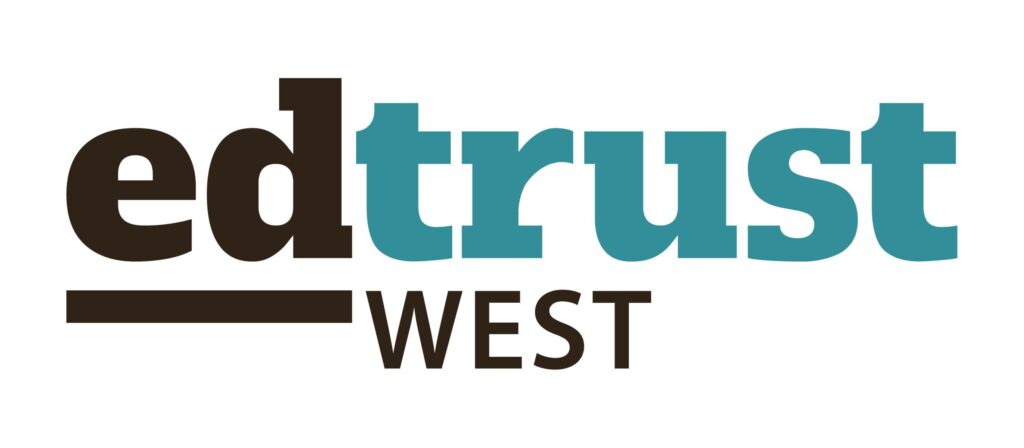California’s most vulnerable students are disproportionately taught by less effective teachers, and they often attend schools with a revolving door of teachers and administrators. This is no accident. State laws promote unfair local practices such as seniority-based layoffs, which force districts to lay off the most recently hired teachers when reductions are necessary. Laws like this protect the status quo to the detriment of high-poverty students and communities.
For several years now, there has been heated debate in Sacramento around whether and how these laws, as well as laws governing the teacher evaluation system, should be fixed. Too often, opinion-makers characterize these discussions as pitting adult interests against student interests. We believe that changes to one-size-fits-all laws that mandate bureaucratic processes such as seniority-based layoffs are in the interests of both students and teachers.
Both our research and a rising chorus of teacher voices tell us that educators want to improve their craft and stay in the profession and that they welcome the implementation of multiple measure evaluation systems. We also believe that many educators want to work and stay in our highest need schools and neighborhoods.
Our state and district leaders should build upon this enthusiasm. California should reform our state’s teacher evaluation laws and incentivize our most effective teachers to work in our highest need schools and communities. Particularly as baby boomers retire, state and district leaders must draw new college graduates into teaching careers. In our increasingly diverse state, they must, in particular, focus on attracting our best and brightest college graduates of color into teaching. Education leaders must improve working conditions in high-need schools by creating stable, supportive, and collaborative work environments. To that end, state leaders must stop forcing district leaders to send pink slips to great but less experienced teachers while retaining less effective teachers with more seniority. And our laws that make it nearly impossible to dismiss even a grossly ineffective teacher must be changed.
In doing so, we can offer every student access to great teachers.
In order to ensure equitable access to great teachers, we recommend that state leaders:
1. Create incentives for teachers to enter the profession, work at high-poverty schools, and teach hard-to-staff subject areas.
Although California is producing enough new teachers each year to fill vacancies, there are breaks and leaks in the pipeline. Many high-poverty schools face shortages of teachers, and some subject areas such as special education and the science, technology, engineering, and math (“STEM”) fields are particularly hard to staff. California needs to invest in building a stronger teacher pipeline, with a focus on bringing effective teachers and those with specialized content knowledge into the neediest neighborhoods. Expand programs like 100Kin10, a national effort to increase the supply of STEM teachers by securing commitments from partner universities and organizations. Expand the availability of scholarships, stipends, loan cancellations, and other support for teacher candidates who commit to teach in underserved communities. Offer incentive bonuses to teachers who wish to transfer to high-need schools. Expand teacher induction and loan-forgiveness programs for new teachers, especially those entering our neediest schools, even when those teachers may be entering the profession with a temporary credential. Focus particular attention on recruiting students of color into our teacher credential programs, as teachers of color are significantly under-represented in our schools.
2. Provide teachers with rigorous and ongoing evaluation, development, and support.
We must build work environments in our highest poverty schools that are designed to retain and support teachers, particularly early career teachers. This begins by staffing our neediest schools with top leaders. To achieve this, the state must improve principal recruitment, preparation, support, and evaluation. The state must also incentivize districts to assign the most effective principals to the highest need schools. In addition, every teacher should receive meaningful feedback every year. California should develop a statewide framework to guide districts’ adoption of improved teacher evaluation systems based on multiple measures of performance. State leaders can build off the many promising models already being implemented in California districts and charter management organizations. This evaluation system should be coupled with a system of individualized and ongoing professional development that provides teachers with the strategies, mentoring, and support they need to grow as professionals. Finally, we should develop career pathway programs that allow our most promising and accomplished teachers to step into mentor or master teacher roles so they can take on more responsibilities while staying in the profession.
3. Require that districts ensure the equitable distribution of effective teachers, and offer district leaders the flexibility they need to achieve this.
The state should demand that districts provide every student and school equal and increased access to great teachers. Districts should be required to develop systems for monitoring the distribution of teachers by effectiveness, not just experience and credentials, and they should be required to incorporate these data into their Local Control and Accountability Plans as part of the “basic services” priority area. In order to ensure a fair distribution of high-quality teachers, the state should remove provisions in state law that require districts to base staff placement, layoff, and tenure decisions solely on years of experience. Districts should be tasked with developing multiple-measure evaluation systems, and they should use the resulting teacher effectiveness data in place of seniority alone when making layoff and other personnel decisions. Finally, the state should streamline the dismissal process so that principals and district leaders can remove grossly ineffective teachers.

